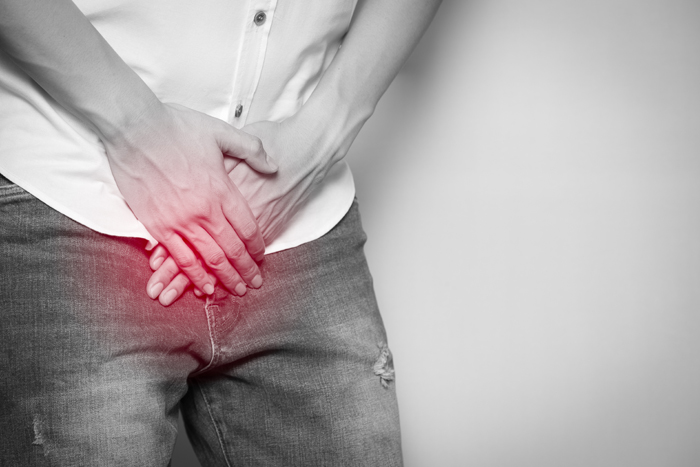Urine incontinence Treatment & Diagnostics in Chirag Enclave, Delhi
Urine incontinence
Introduction to urine incontinence in men
Urine incontinence is a condition in which your bladder doesn’t release urine the way it should. It means you often leak urine. If this is the case, please don’t feel embarrassed. Urine incontinence is a treatable condition. Visit the nearest urine incontinence hospital in Delhi.

Types of urine incontinence
There are six types of urine incontinence, namely -
- Stress incontinence: You may leak urine when pressure is exerted on your bladder from coughing, exercising, or lifting something heavy.
- Urge incontinence: It is also called overactive bladder (OAB). It is a sudden, strong urge to pee that you can’t make it to the toilet in time.
- Overflow incontinence: You have an urge to urinate, but you may not be able to empty the bladder. You may experience constant dribbling of urine. It usually develops in diabetic people.
- Functional incontinence: It has nothing to do with bladder disorder. You may not make it to the bathroom in time due to physical disability or mental condition.
- Mixed incontinence: Sometimes you may experience more than one type of incontinence. Often, stress incontinence happens along with urge incontinence.
- Transient incontinence: It is temporary. Usually, it develops due to a UTI (urinary tract infection) or side effects from medicine.
Symptoms of urine incontinence
Symptoms of urine incontinence include -
- Urine leakage while coughing, bending, lifting, exercising
- Sudden strong urge to urinate
- Urine leakage without the urge
- Bed-wetting
Causes of urine incontinence
Common causes of urinary incontinence include -
- Urinary tract infections
- Weak bladder muscles
- Loss of sphincter strength
- Enlarged prostate
- Prostate cancer
- Nerve damage
- Neurological disorders such as stroke, Parkinson’s disease
- A physical ailment that makes it difficult to reach the toilet
- Side-effects from medicines
- Chronic cough
When to see a doctor?
If you have lost bladder control or experience any other related symptoms, please do not hesitate to consult a urine incontinence specialist in Delhi. Urine continence could be temporary due to urinary tract infections or could indicate a severe underlying condition.
Request an appointment at Apollo Spectra Hospitals, Chirag Enclave, Delhi.
Call 1860 500 2244 to book an appointment.
Risk factors associated with urine incontinence
Various factors that increase your risk of developing urine incontinence include -
- Prostate gland problems
- Old age
- Obesity
- Smoking
- Heavy use of alcohol
- Lack of physical activity
- Family history: if a close family member has urine incontinence, your chances of developing the condition are automatically higher
- Diabetes
How is urinary incontinence treated?
Male incontinence treatment options include -
- Lifestyle changes
- Cut back on caffeine
- Eat foods rich in fiber
- Quit smoking and drinking
- Develop an exercise routine
- Go to the toilet at set times each day (bladder training)
- Practice double voiding. It means urinating as much as you can, relax for a moment, and then go again.
- Medicines
- Anticholinergics: to calm overactive bladders, Oxybutynin (Ditropan)
- Mirabegron: to relax bladder muscles and increase bladder capacity (Myrbetriq)
- Alpha-blockers: relax prostate muscle fibers, allows easier emptying of the bladder (Flomax, Cardura)
- Incontinence devices
For unmanageable incontinence, your doctor can also recommend you using absorbent pads, adult diapers, or catheters. - Bulking agents
A synthetic material (botox) is injected into the bladder muscles. Botox will put pressure on your urethra and help it close when you are not urinating. - Surgery
Surgery is the last resort for treating urine incontinence. Two surgeries that are performed on men include -- Artificial urinary sphincter balloon: A balloon is inserted around the neck of your bladder to keep the sphincter shut until it’s time to urinate. When you urinate, a valve under your skin deflates the balloon. Urine is released, and the balloon inflates again.
- Sling procedure: The doctor uses a mesh to create a sling around the bladder neck. It helps keep the urethra closed when you sneeze, cough.
For urine incontinence treatment in Delhi, request an appointment at Apollo Spectra Hospitals, Chirag Enclave, Delhi. Call 1860 500 2244 to book an appointment.
Conclusion
Urine incontinence means that you lack voluntary control over urination. It may be due to urinary tract infections or other severe underlying conditions. It is best to get diagnosed and treated before it is late. We recommend visiting a doctor to begin the treatment at your earliest convenience.
A complete urine analysis is performed.
Treatments for urine incontinence depend on how much the condition is affecting your life. From simple exercises to surgery, your treatment can include anything.
Yes, it may come and go depending on the cause.
Symptoms
Our Top Specialities
NOTICE BOARD
CONTACT US
CONTACT US
 Book Appointment
Book Appointment


.svg)
.svg)
.svg)
.svg)








